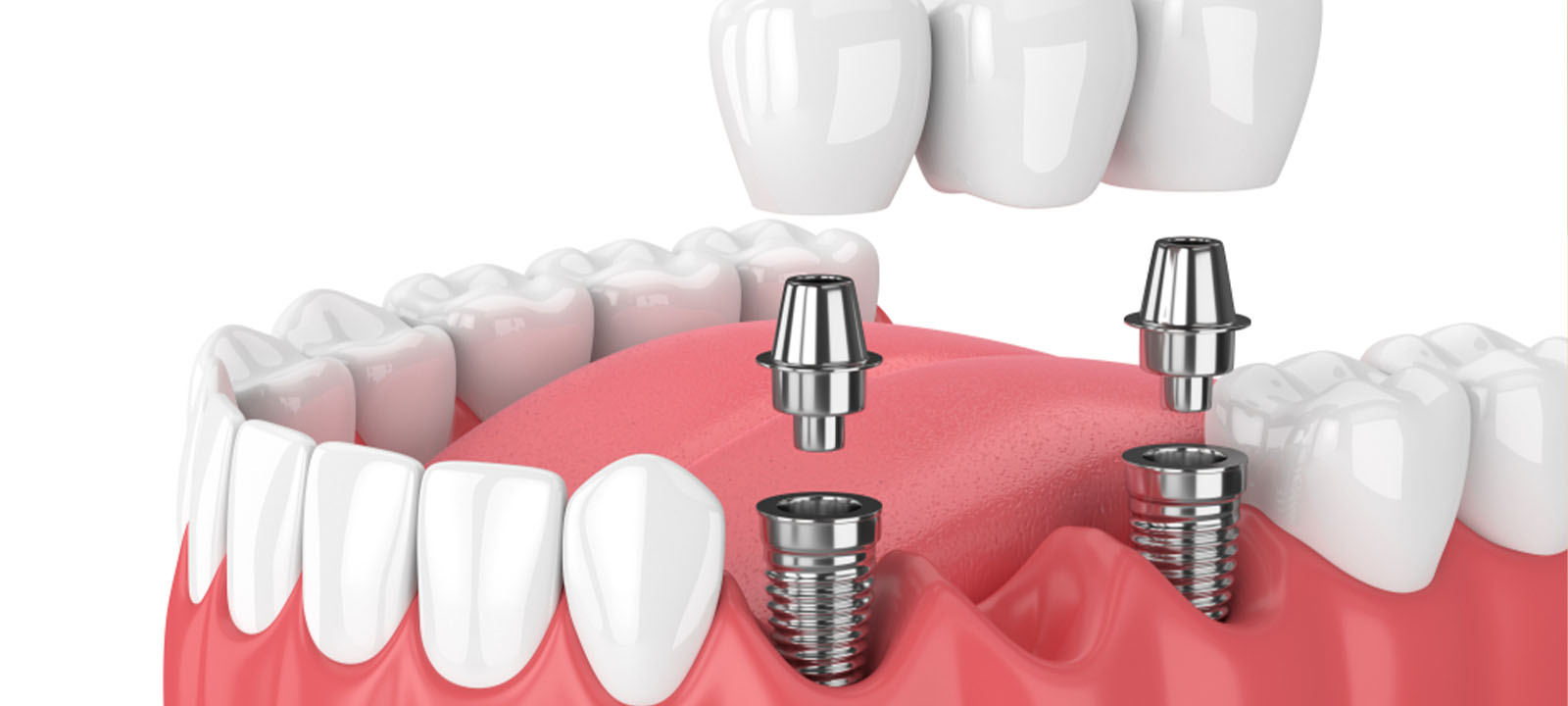In which cases should implants be applied?
Each dental treatment has certain criteria. It is difficult to perform dental treatment according to the patient's request. Implant treatment is a surgical option applied in cases of tooth loss. Tooth decay, periodontal diseases, trauma and- or similar conditions can be eliminated with implant treatment. If tooth loss is not treated for a long time and implants are not made, the patient's jaw bone will melt and treatment will become more difficult. In this case, bone transplantation will be required. Dental implant treatment prevents bone loss and restores the patient's chewing functions. It also provides perfect aesthetics with its natural appearance. If there is a single tooth loss, it can be treated with a bridge method. Neighboring teeth are reduced and a bridge is made in that area. However, this method has risks, namely the possibility of damaging the natural tissue. However, implant surgery minimizes all these risks and provides excellent results.
Who is dental implanted?
Anyone who has completed the bone formation in the mouth and jaw and is 18 years of age or older can receive implant treatment. This is the most important condition of this treatment. Of course, first of all, an x-ray of the patient's jaw structure is taken to determine whether they are suitable for implant surgery. Not everyone has the appropriate conditions for this treatment. Your doctor will decide on this. In cases where it is not suitable, your treatment can continue with different alternatives. If you are a diabetic, this disease must first be treated. In cases of single tooth loss, regional tooth loss or complete tooth loss, implant treatment can be applied. All individuals over the age of 18 in this situation are suitable candidates for implant surgery. In very exceptional cases, if the patient's bone development is above standard, implants can be applied at the ages of 16 and 17. Parental approval is required for this. If it causes a serious health problem that can affect social life, the age limit can be reduced. In cases of insufficient bone level, dental implant treatment can be applied immediately after tooth extraction, in smokers and in individuals without serious health problems.
Who cannot have dental implants?
First of all, let's state this; in this heading titled Who cannot have dental implants, we will only talk about possible exceptions. If these problems are treated and eliminated, implant surgery can be applied to everyone. Implant treatment is not applied to individuals with insufficient bone density, diabetics, people with heart disease, people with blood diseases, patients receiving cancer treatment, people on heavy medication, alcohol addicts, people with irregular immune systems, people who grind their teeth constantly, and young children whose bone development has not yet been completed. Treatment can only be started if these negative conditions are eliminated. It is useless to insist on this issue with your doctor. Because it is only applied to patients who are suitable for this treatment. Otherwise, it can cause very serious health problems and the treatment may have negative results. Dental implant surgery performed with local anesthesia is performed by specialist physicians. It is a practical, easy and fast treatment option. We would also like to say that it has become a very economical method recently.





